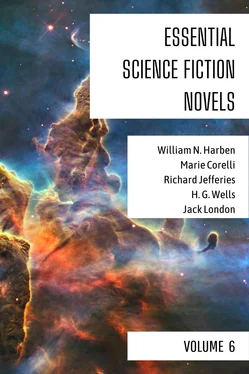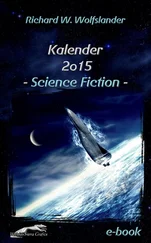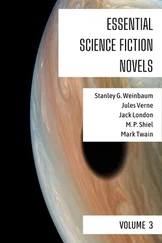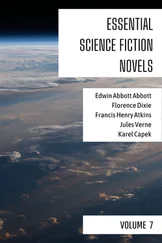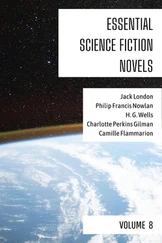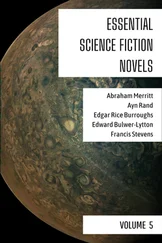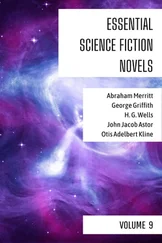Introduction
A new sort of magazine
By Hugo Gernsback 1 2
Another fiction magazine!
At first thought it does seem impossible that there could be room for another fiction magazine in this country. The reader may well wonder, "Aren't there enough already, with the several hundreds now being published?" True. But this is not "another fiction magazine," Amazing Stories is a new kind of fiction magazine! It is entirely new—entirely different—something that has never been done before in this country. Therefore, Amazing Stories deserves your attention and interest.
There is the usual fiction magazine, the love story and the sex-appeal type of magazine, the adventure type, and so on, but a magazine of "Scientifiction" is a pioneer in its field in America.
By "scientifiction" I mean the Jules Verne, H. G. Wells, and Edgar Allan Poe type of story—a charming romance intermingled with scientific fact and prophetic vision. For many years stories of this nature were published in the sister magazines of Amazing Stories—"Science & Invention" and "Radio News."
But with the ever increasing demands on us for this sort of story, and more of it, there was only one thing to do—publish a magazine in which the scientific fiction type of story will hold forth exclusively. Toward that end we have laid elaborate plans, sparing neither time nor money.
Edgar Allan Poe may well be called the father of "scientifiction." It was he who really originated the romance, cleverly weaving into and around the story, a scientific thread. Jules Verne, with his amazing romances, also cleverly interwoven with a scientific thread, came next. A little later came H. G. Wells, whose scientifiction stories, like those of his forerunners, have become famous and immortal.
It must be remembered that we live in an entirely new world. Two hundred years ago, stories of this kind were not possible. Science, through its various branches of mechanics, electricity, astronomy, etc., enters so intimately into all our lives today, and we are so much immersed in this science, that we have become rather prone to take new inventions and discoveries for granted. Our entire mode of living has changed with the present progress, and it is little wonder, therefore, that many fantastic situations—impossible 100 years ago—are brought about today. It is in these situations that the new romancers find their great inspiration.
Not only do these amazing tales make tremendously interesting reading—they are also always instructive. They supply knowledge that we might not otherwise obtain—and they supply it in a very palatable form. For the best of these modern writers of scientifiction have the knack of imparting knowledge, and even inspiration, without once making us aware that we are being taught.
And not only that! Poe, Verne, Wells, Bellamy, and many others have proved themselves real prophets. Prophesies made in many of their most amazing stories are being realized—and have been realized. Take the fantastic submarine of Jules Verne's most famous story, "Twenty Thousand Leagues Under the Sea" for instance. He predicted the present day submarine almost down to the last bolt! New inventions pictured for us in the scientifiction of today are not at all impossible of realization tomorrow. Many great science stories destined to be of an historical interest are still to be written, and Amazing Stories magazine will be the medium through which such stories will come to you. Posterity will point to them as having blazed a new trail, not only in literature and fiction, but in progress as well.
We who are publishing Amazing Stories realize the great responsibility of this undertaking, and will spare no energy in presenting to you, each month, the very best of this sort of literature there is to offer.
Exclusive arrangements have already been made with the copyright holders of the entire voluminous works of ALL of Jules Verne's immortal stories. Many of these stories are not known to the general American public yet. For the first time they will be within easy reach of every reader through Amazing Stories. A number of German, French and English stories of this kind by the best writers in their respective countries, have already been contracted for and we hope very shortly to be able to enlarge the magazine and in that way present always more material to our readers.
How good this magazine will be in the future is up to you. Read Amazing Stories—get your friends to read it and then write us what you think of it. We will welcome constructive criticism—for only in this way will we know how to satisfy you.
By Dorothy Scarborough 3
The application of modern science to supernaturalism, or of the supernatural to modern science, is one of the distinctive features of recent literature. Ghostly fiction took a new and definite turn with the rapid advance in scientific knowledge and investigation in the latter part of the nineteenth century, for the work of Darwin, Spencer, Huxley, and their co-laborers did as much to quicken thought in romance as in other lines. Previous literature had made but scant effort to reflect even the crude science of the times, and what was written was so unconvincing that it made comparatively little impress. Almost the only science that Gothic fiction dealt with, to any noticeable extent, was associated with alchemy and astrology. The alchemist sought the philosopher’s stone and the elixir of life while the astrologer tried to divine human destiny by the stars. Zofloya dabbled in diabolic chemistry, and Frankenstein created a man-monster that was noteworthy as an incursion into supernatural biology, yet they are almost isolated instances. Now each advance in science has had its reflection in supernatural fiction and each phase of research contributes plot material, while some of the elements once considered wholly of the devil are now scientific. The sorcerer has given place to the bacteriologist and the botanist, the marvels of discovery have displaced miracles as basis for unearthly plot material, and it is from the laboratory that the ghostly stories are now evolved, rather than from the vault and charnel-room as in the past. Science not only furnishes extraordinary situations for curdling tales, but it is an excellent hook to hang supernatural tales upon, for it gives an excuse for believing anything, however incredible. Man is willing to accept the impossible, if he be but given a modern excuse for it. He will swallow the wildest improbability if the bait be labeled science or psychical research. No supernaturalism is incredible if it is expressed in technical terminology, and no miracle will be rejected if its setting be in a laboratory. One peculiar thing about modern scientific thought in its reaction upon fiction is that it is equally effective in realism, such as shown in the naturalistic novels of Zola, the plays of Brieux and others, and in supernaturalism, as in the work of H. G. Wells, for instance, where the ghostly is grafted on to cold realism.
The transition from the sorcerer, the wizard, the warlock of older fiction to the scientist in the present has been gradual. The sorcerer relied wholly upon supernatural, chiefly diabolic, agencies for his power, while the wizard of the modern laboratory applies his knowledge of molecules and gases to aid his supermortal forces. Modern science itself seems miraculous, so its employment in ghostly stories is but natural. The Arabian Nights’ Tales seem not more marvelous than the stories of modern investigations. Hawthorne’s narratives stand between the old and the new types of science, his Rappaccini, Dr. Heidigger, Gaffer Dolliver, Septimius Felton and his rivals in search for the elixir of youth, as well as the husband who sought to efface the birthmark from his young wife’s cheek, being related in theme to the older conventional type and in treatment to the new. Poe’s scientific stories are more modern in method and material, and in fact he made claim of originality of invention for the idea of making fiction plausible by the use of scientific laws. His
Читать дальше
